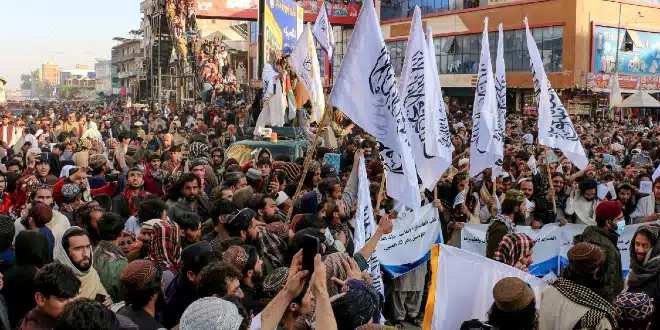Syria’s newly appointed interim prime minister has committed to protecting the rights of minority groups as the US’s top diplomat arrived in the region to encourage a transition toward an inclusive government following the ousting of President Bashar al-Assad.
Assad’s departure came after a rapid offensive by the Islamist group Hayat Tahrir al-Sham (HTS) and its allies, bringing an end to five decades of harsh Assad rule. Syrians across the country, and those in exile, celebrated the fall of a regime that had repressed dissent, imprisoning and executing those suspected of opposing it. After nearly 14 years of brutal conflict that resulted in over 500,000 deaths and millions displaced, many citizens expressed their relief. One resident from Assad’s hometown shared how they were constantly threatened for speaking out.
Amid the celebrations, there are concerns about Syria’s future, given its complex multi-ethnic and multi-confessional makeup. The interim government, which includes HTS, has reassured minority groups that their rights will be safeguarded. HTS, a group originally linked to Al-Qaeda and considered a terrorist organization by several Western countries, has moderated its rhetoric and stated its commitment to ensuring the protection of all groups in Syria. Mohammad al-Bashir, the interim leader, emphasized their commitment to justice for those who suffered under Assad’s rule, pledging that officials responsible for torture would not escape accountability.
Meanwhile, US Secretary of State Antony Blinken arrived in Jordan to start a tour aimed at supporting an “inclusive” and “Syrian-led” transition. Blinken’s visit underscores concerns about Syria becoming a breeding ground for terrorism and a threat to neighboring countries like Turkey and Israel, which have conducted strikes inside Syria since Assad’s fall.
Despite the end of Assad’s regime, Syrians face the daunting task of rebuilding their country. The transitional government has called on the millions of Syrian refugees abroad to return, emphasizing that the country is now free and ready for reconstruction. The main airport in Damascus, which had been closed since the capital fell to the rebels, is set to reopen shortly.
International officials, including UN envoy Geir Pedersen, have urged a careful, inclusive process, warning that any missteps could reignite civil strife. In cities like Aleppo, where the rebels’ offensive started, some Syrians feel safer, but many, like shopkeeper Juman Khilaly, express concerns about the high cost of living.
As the transition unfolds, the Baath party, which supported Assad, announced it would suspend operations and hand over its assets. Assad reportedly fled to Russia, which had long supported his regime alongside Iran and Hezbollah. Russia has called for Syria’s swift stabilization, though it has criticized Israeli airstrikes on Syrian military sites. Some Western governments, including Germany and France, have warned against escalating military actions, urging respect for Syria’s territorial integrity and the transition of power.
 The Daily Star Ireland
The Daily Star Ireland

